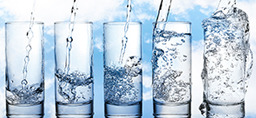
Maybe you’re aiming to improve your running speed. Or maybe you’re hoping to lose weight. Or perhaps you’d just like to become more active and have fun.
No matter what your goal, fueling your body the right way will help you feel better and perform at your best when you’re running.
Start hydrated
Most adults need about eight cups of fluid per day, but this varies based on each person’s size.
For shorter runs of about 5 miles or less, hydration should not be an issue. It’s best to sip water at aid stations to quench your thirst.
For longer runs, such as those lasting over an hour, it’s best to weigh yourself before and after a training run. You should also keep track of your fluid intake during your run.
One pound of weight loss equals one pint of water loss.
It’s recommended to drink water every 15 to 30 minutes during your run, and then also hydrate after you’ve finished.
For longer runs, sports drinks are recommended because they contain electrolytes such as salt and potassium. For shorter runs, water alone is sufficient.
Running fuel
Carbohydrates are the main fuel for exercise. They are stored as glycogen in your liver and muscles, and the glycogen in muscle is quickly released for energy.
The catch: The storage capacity is limited. Your body can store about 500 grams of carbohydrates at once and, at most, this will last you for about 60 to 90 minutes worth of running.
The faster you go, the quicker your stores will be depleted.
For runs over an hour, you need to think about carbohydrate replacement using energy drinks, gels or bars. Aim for 30 to 60 grams of carbs per hour.
Good carb sources include fruit, vegetables and whole grain bread and pasta.
Post-race
What about after the race? Now your body needs to recover.
The key to a fast recovery is to replace 1.5 times the amount of fluid lost on the run. You should also get a high-carb, high-protein snack within 30 minutes of finishing your run.
Sports drinks, chocolate milk, or fruit with peanut butter are all ideal post-run recovery options.
While protein is not a primary fuel source during running, it is important in recovery because it helps to build and repair muscle.
Good sources of protein include meat, eggs, dairy or plant-based options, such as beans, lentils, nuts or tofu.
With good nutrition and training, you should feel your best on race day—and it will help you perform your best.
 /a>
/a>
 /a>
/a>
 /a>
/a>
Corewell Health has a Microsoft Teams page for runners where we talk upcoming races and have some discount codes. Search for “Runners”!
NICE BLOG